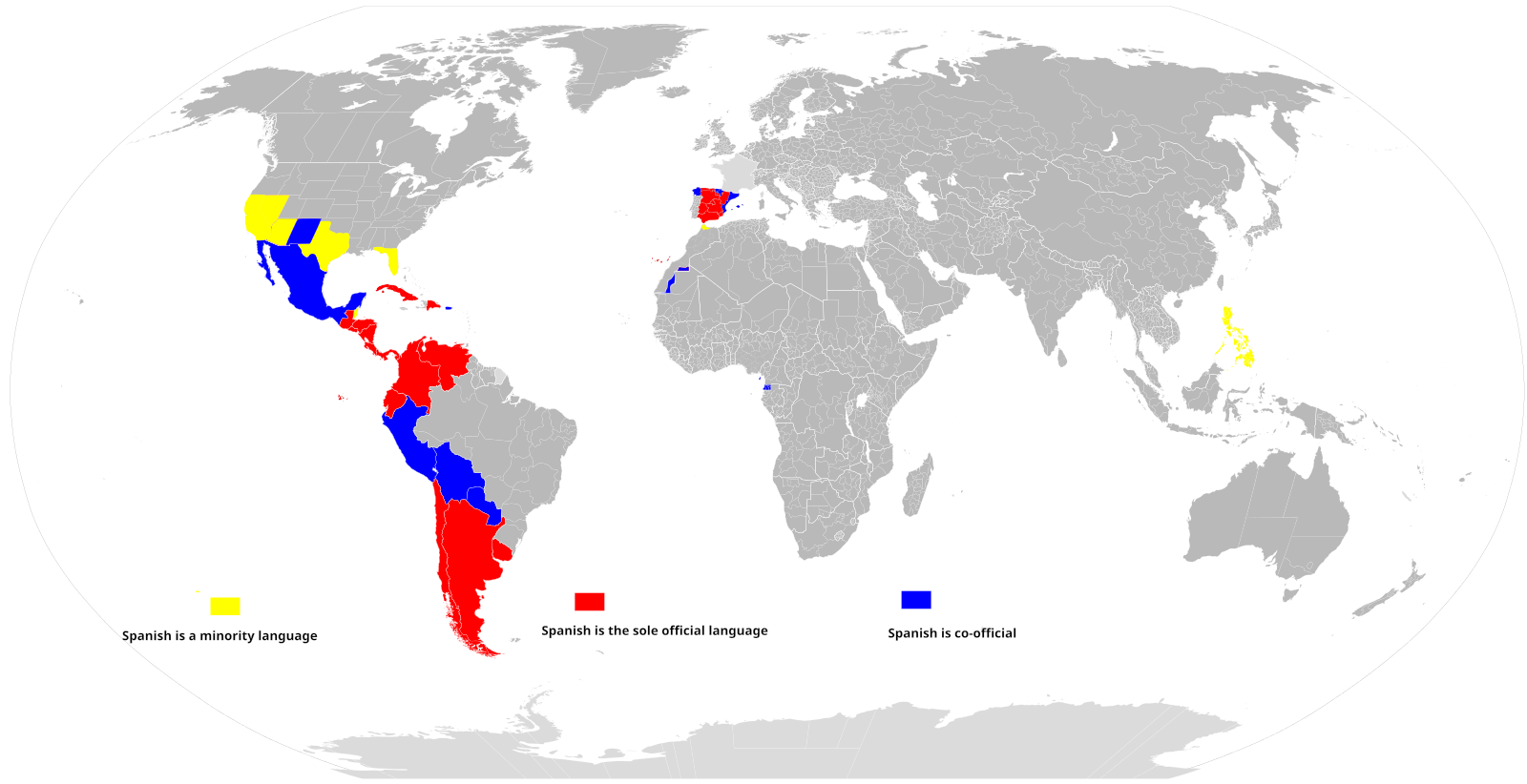AP Spanish exams require students to achieve an advanced level of understanding of the language in order to count towards the Advanced Placement Program. It certainly is not an easy task due to the fact that people have to learn the nuances of Spanish and even conversational language to prove their abilities. The AP Spanish exams can be very tough, but the more experience in the Spanish language you have, the better chance you have.

What Is Covered in the AP Spanish Exam?
It isn't easy to define the AP Spanish exam content, but the College Board specifies what students can expect from the format. Therefore, it would be in your best interest to get familiar with the exam structure when preparing for the test since all questions come within a specific pattern.
AP Spanish practice can prove to be stressful for non-native speakers. Since this exam is a decisive measure to test proficiency, it covers an exhaustive list of topics. Moreover, it is among the longer exams, with a duration of three hours.
The AP Spanish exam can be broken down into two components, which are further divided into subsections comprising of multiple-choice, multiple-choice with audio, free-response writing, and free-response speaking sections.
It normally takes around 3.5 hours to complete the AP Spanish exam.
For the first part – which carries half of the overall weightage – candidates are tested on their reading and listening skills. Its first subsection consists of 30 questions where candidates must read out printed text and choose the correct answers.
The second subsection involves testing both reading and listening skills and consists of 35 questions divided among various audios and related texts.
Moving on, the next part of the exam consists of writing and speaking sections. The writing section includes a straightforward email response exercise and a persuasive essay, where candidates must wade through graphs, texts, and other contextual information and present their argument.
The speaking section – while shorter – is arguably the toughest. Here, candidates must be quick on their toes and deliver instant responses. They are asked to engage in a conversation that circles the provided content.
At the end of the speaking section, candidates must prepare a presentation on Spanish cultural features. They have to get their point across in a clear, concise manner. This can be a challenge but it is a way to demonstrate practical Spanish skills.
Skills Required for the AP Spanish Exam
Since most AP Spanish study guides cover an extensive amount of information, it can be hard to pinpoint which areas need the most focus. None of these are easy and a good understanding of the language is needed. Before appearing for the exam, here are a few skills you should try mastering:
Reading Skills
A significant portion of the exam requires candidates to comprehend various texts and interpret them, specifically in the persuasive essay and multiple-choice sections. This is why clarity, reading speed, and strong comprehension skills are crucial to acing the AP Spanish exam. Speed is one thing that people really struggle with as it can take a long time to process spoken or written Spanish.
Listening Skills
A quarter to a third of the AP Spanish test requires candidates to listen to audio and prompts, highlighting the need for impeccable listening skills.
Candidates must be able to recognize phonetics, intonation, and the context of conversational Spanish. This can be particularly hard because it requires actual everyday practice outside of class, where candidates must engage with Spanish speakers.

Developing speaking skills for AP Spanish also entails acquainting yourself with phrases and euphemisms.
You will be given a short time to comprehend and respond to a question. That means that even if you can’t find the words for coherent expression, you can respond with an alternative description that explains your thoughts most adequately. In short, it's vital to maintain the fluidity of thought in your speaking skills.
Mastering Grammar
The trickiest part of learning a language is mastering grammatical nuances. Spanish has its fair share of grammatical quirks, which can confuse the best of us. To ace your AP Spanish exam, you must perfect the use of unique oddities.

Some Spanish grammatical rules are different from that of English, and it can be hard to train your brain to utilize them in speech, such as knowing when to use the subjunctive mood and indicative mood.
Besides this, it can be tricky to perfect the irregular verb conjugations, such as ser, estar, and tener. Learning any language can be very tricky when you get to the point of having to put together sentences.
Knowing your way around tricky grammatical concepts can help you achieve a high score on your AP Spanish exam. This is one of the areas that people struggle with a lot when they are trying to learn Spanish, but the examination will ask you to be specific and provide examples, which can add extra pressure.
Why Choose AP Spanish?
The AP Spanish Language and Culture test is the most commonly attempted language test; every year, around 100,000 candidates take the exam.
Due to the high percentage of Spanish speakers in states like New Mexico and California, many school districts start students off with Spanish classes from middle school and continue straight into the final year of high school.
Additionally, the courses start from Spanish 1 to 4 and culminate in Advanced Placement (AP) classes in the senior year. Anyone can appear for the AP Spanish exam regardless of whether or not they have studied Spanish.
Furthermore, Spanish is spoken by almost half a billion people worldwide, mostly in South America, Central America, Spain, and Mexico. This number also includes around 45 million people in the United States. Therefore, learning Spanish will allow you to communicate with more than half of the Western population.

Knowing how to speak the language will also expose you to the rich world of Spanish media and literature. You can follow Spanish news, read books and newspapers, and watch telenovelas.
Additionally, many jobs require employees to possess basic Spanish speaking skills because of the ever-growing Hispanic community. In some districts, Spanish is even more useful than English. Multilingual employees are highly valued and sought after by companies these days. Knowing Spanish can also make you a potential candidate for jobs in Latin America and Spain.
But most importantly, learning a new language can be quite fulfilling and a medium to boost your confidence. People who learn new languages can think outside the box and possess better communication skills. It can help you make new friends around the world and add a new skill to your resume.

Preparation Tips for AP Spanish Exam
As a potential candidate for the AP Spanish exam, you have various resource materials at your disposal to help you prepare. Most study guides on the internet are packed with useful AP Spanish tips to help you achieve high scores. You can find numerous study questions and mock tests to help familiarize yourself with the exam format.
Additionally, you can also access learning tutorials on video streaming platforms aimed towards AP Spanish practice. However, it can be challenging for students to grasp concepts with one-way learning. Loads of people take this exam every year which means there are plenty willing to share their experiences and provide some additional tips.
This is how many students took the AP Spanish exam in 2023, showing how popular it is.
Learning a language comes down to how much you actively practice it. Knowing how to use grammar and vocabulary can only do so much for your language skills. The real test of your skills will be to learn to converse in it regularly.
If you live in a Hispanic neighborhood or have friends who are fluent speakers of the language, try to converse with them in Spanish. Even if you find yourself stuttering or erring, looking for the right words, still, it will help you perfect your skills.
Unfortunately, not all of us have the luxury of having multilingual friends and even if we do, not all of them are free to help us in our language learning journey.
Interactive lessons are the best way to master a language's nuances, and the internet makes it incredibly easy to find tutors for every subject these days and there are even ways to find the tasks from prior exams to give you an idea of what to expect.
Superprof provides you the ease of finding an AP Spanish tutor from the comfort of your home. It's your discretion whether you choose online lessons or you opt for in-person classes. With Superprof, you get the opportunity to pick the most qualified Spanish tutors that suit your learning needs.
Simply visit our website, and enter “AP Spanish” where it says “Choose a subject.” Right next to it is another text-box where you should enter your location. Within seconds, profiles of AP Spanish tutors near you will appear. Check out their reviews, ratings, and merits to narrow down to a professor who meets your requirements and is within budget.
The best part is that most teachers will provide the first session for free, so you can tell if they are as good as claimed, without spending a dime!
Find the perfect Spanish online course with an amazing tutor on Superprof today!
Résumer avec l'IA :
















